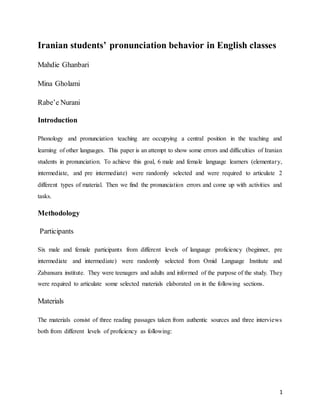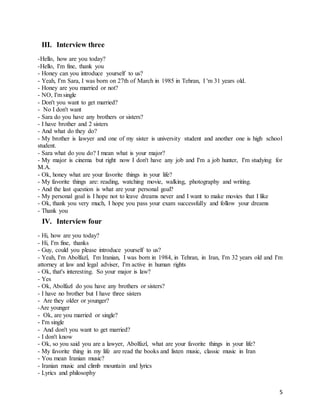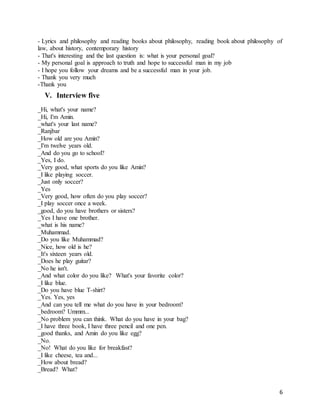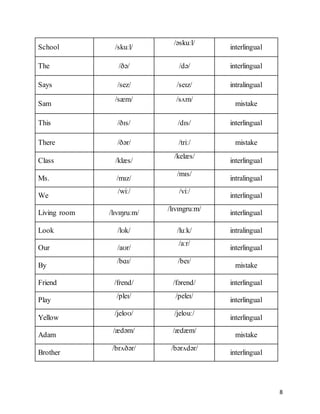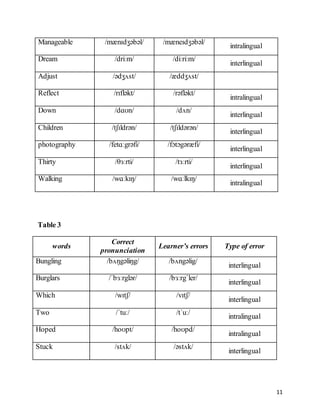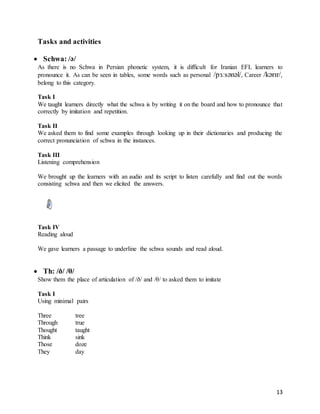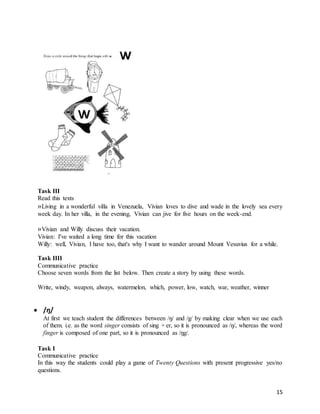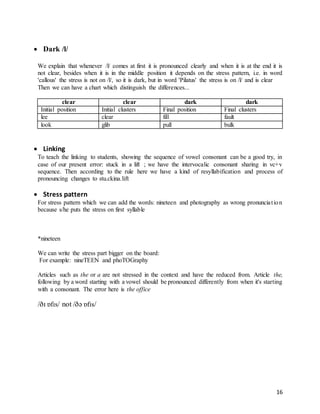Six Iranian students from different proficiency levels were selected to analyze their pronunciation errors. They read five texts and participated in four interviews in English. The texts covered topics like school, goal setting, learning styles, and news stories. The interviews gathered basic information like names, ages, and favorite activities. Analysis of the students' readings and interviews will help identify common pronunciation mistakes and inform activities to improve their English phonological skills.
